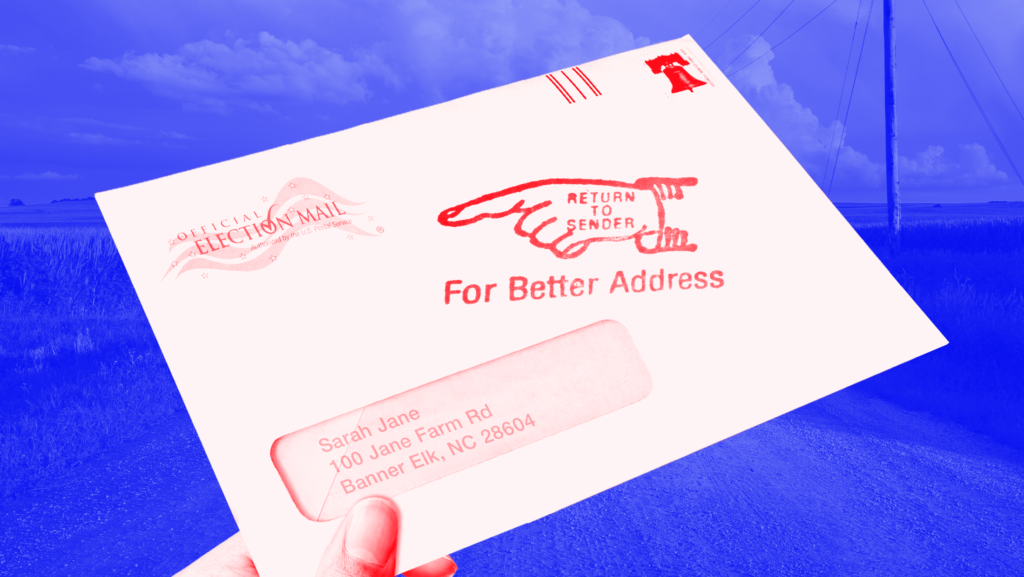Disenfranchising Rural North Carolina Is By Design

Even on a sunny day, you have to use four-wheel drive to get up to Sarah’s farm. Forrest lives in an old mechanic shop, exchanging his labor for rent. Jamal has recently moved back into a trailer on some family land — to get to it, just cut through the yard past his grandma’s house and head back through the pines. Becky and her children stay in a motel, but hope to get an apartment soon. Lamar is staying with friends to save up money from his new job.
Their names are changed but each of these are real working-class rural North Carolinians whom we work and organize with at Down Home North Carolina every day. They are committed local citizens in their small hometowns — the type who regularly go to school board meetings, volunteer at the polls and never ever miss the opportunity to cast their ballots. But they are each also either housing insecure or live in nontraditional housing arrangements that are increasingly common in our state.
That is why Down Home joined the lawsuit against Senate Bill 747, an elections bill recently passed by the North Carolina General Assembly. People like Sarah, Forrest, Jamal, Becky and Lamar encourage their neighbors to be civically engaged and vote, but S.B. 747 could make so many of their votes not count.
Under S.B. 747, same-day registrants voting during the early voting period are required to prove their identity and their address when they register. However, despite this proof of who they are and where they live, they are still required to vote on a “retrievable” ballot that will be thrown out if a single piece of mail sent to them after they vote by their county board of elections is returned as undeliverable. Their voter registration would be thrown out, too.
S.B. 747 makes it so that too many people would go to the polls, lawfully vote and later learn — or perhaps never learn — that their vote didn’t count.
Those might sound like boring details — the stuff made up by level-headed administrative types — but the impact is very real.
The fear is that the disenfranchisement S.B. 747 subjects certain North Carolinians to is not happenstance, but by design. It is not surprising that it is poor and working people who get caught in “details” like this. Last year, Down Home had conversations with hundreds of working people across seven rural counties to find out what their largest concerns were for their communities. Housing issues topped the list in every single county.
Having a steady address is increasingly a luxury in a housing market and economy that favors the wealthy; working families are often evicted, have month-to-month leases, live in motels and frequently live doubled up.
No one should be disenfranchised because of their living situation, just as no one should be disenfranchised because of a mail error — especially if it’s by no fault of their own. As we set out in the lawsuit, “studies have shown that up to 23% of all undeliverable mail is the result of USPS error rather than a faulty address.”
If you have driven up to Sarah’s farm or tried to follow directions that invariably include instructions such as “slow down by the Baptist church and hang a right after the cluster of Carolina pines” this statistic won’t surprise you. Compounding the problem, poll workers often complete registration applications for same-day registrants and may make mistakes in recording the voter’s address.
Having nontraditional or insecure housing shouldn’t jeopardize a North Carolinian’s ability to have their vote count just because a piece of mail gets returned. S.B. 747 makes it so that too many people would go to the polls, lawfully vote and later learn — or perhaps never learn — that their vote didn’t count.
At Down Home, we think these are precisely the people whom our government needs to be listening to the most closely — the people who live at the crossroads of a precarious economy and bad policy.
It appears that North Carolina’s lawmakers disagree with us and do not want to hear the opinions — or count the votes — of poor and working people. Rather than introduce new electoral safeguards or necessary administrative tidiness, S.B. 747 is a voter suppression bill in pure form.
Gwen Frisbie-Fulton is the communications director at Down Home North Carolina, a rural organizing group building multiracial power with poor and working people. She writes and organizes in the rural South around racial justice and working class issues.